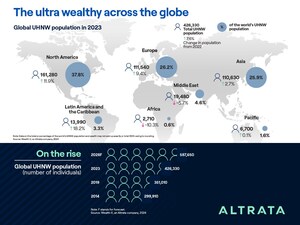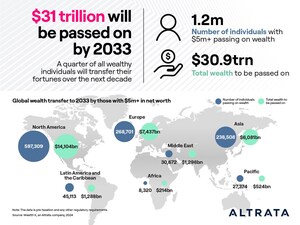The report covers 20 major markets across the globe and reveals that if progress continues at today's pace, it will take until 2034 to reach gender parity in the boardroom. Among executive directors - such as the CEO and executive chair – gender parity wouldn't be reached until 2061.
Among the numerous fundings, Global Gender Diversity 2024 reveals:
- Women account for just 32% of board members and 22% of the C-suite at companies that make up the major indices of the Global 20 countries, up by a mere 1.9 and 1.3 percentage points respectively from 2023
- Large public companies in the US and UK show a slightly higher proportion of female leaders than large privately owned companies (those with an annual revenue of more than $100m)
- Board representation remains a long way from parity, but women continue to have better representation in the "oversight-centered" independent director roles – they account for 36% across the Global 20
- In contrast, a mere 12.2% of executive board roles are filled by women, and only 6.5% of CEOs are female across the Global 20
The US falls short of many of its Western European peers. When it comes to women in the boardrooms of companies in the Global 20, the US continues to rank 13th, with a share of 34.7%. In contrast, the US comes in 5th for female representation on leadership teams, with a share of 28.5%, having overseen an above-average improvement of 1.7 percentage points year on year.
While all countries made progress since 2023, some made more progress than others. France retains the top spot globally and has been the leader for the past three years as well as all the way back in 2014. Spain made the most progress since 2023, with the proportion of women on boards in the IBEX 35 up by 4.8 percentage points. In the process Spain broke the 40% barrier, suggesting it could challenge for the top spot. In contrast, India's BSE 2000 made the least amount of progress during that same time.
The study goes on to find there are stark differences in female representation among the five key executive roles of CEO, CFO, COO, CMO and CHRO. Among companies in the US S&P 500, women hold less than 20% of the three positions of the highest executive power: CEO, CFO and COO. This contrasts with 53% and 73% of CMOs and CHROs respectively. Trends in the UK's FTSE 100 are similar, although around a quarter of COOs and CFOs are women and the female majority among CMOs and CHROs is even higher. Encouragingly, there has been year-on-year improvement across most of these roles in both the US and UK.
Altrata's Global Gender Diversity 2024 report provides unique insights into gender diversity on corporate boards and leadership teams. It is essential reading for individuals at corporations, recruitment firms and anyone interested and invested in advancing the cause of talented female leaders and nurturing effective and inclusive working environments.
Read the full report here.
About Altrata
Altrata provides the most essential intelligence and insight on business leaders, the global wealthy and well-connected. The leading commercial, philanthropic, and educational institutions depend on Altrata solutions to meet their growth objectives. Clients partner with Altrata to confidently engage with exceptional individuals and organizations, create meaningful relationships and seize strategic opportunities.
Altrata's global dataset contains millions of individual profiles on the wealthy, senior decision makers, board members and C-suite leaders. Altrata offers actionable, accurate and comprehensive data maintained by a global team of in-house researchers committed to surfacing the right insight at the right time to drive positive business outcomes. Altrata is a definitive leader in global wealth intelligence, professional relationships mapping and affluent market dynamics.
Altrata is a registered trademark of Delinian Limited and its affiliated companies, and is comprised of five industry leading offerings: BoardEx, Boardroom Insiders, RelSci, WealthEngine and Wealth-X.
SOURCE Altrata








Share this article